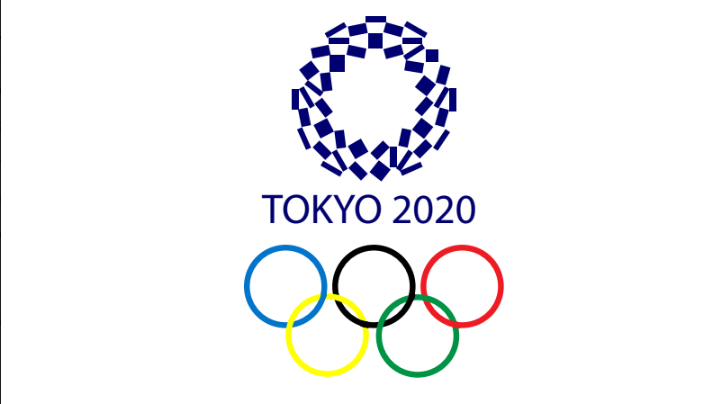2020 (2021) Vision: New Olympic Sports
In the wake of the COVID-19 pandemic, the 2020 Tokyo Olympics have been postponed to 2021. As sports fans, we can’t fill the void that the absence of sports has brought to our lives, but we can look forward to the joy the return of sports will bring. As the world waits, let’s dive into what we can look forward to when the Olympics return: the addition of fun, new, and exciting sports that are sure to spice up the traditional lineup.
March 26, 2020
Brazilian surfers Italo Ferreira and Gabriel Medina paddle out at the Banzai Pipeline in Oahu, Hawaii, set to face off in the finals of the 2019 Billabong Pipe Masters, the 11th and final event of the 2019 World Surf League season. Ferreira is in first place of the WSL standings heading into the final event, with Medina close behind. Now, in the crystal clear water of Hawaii, these heavyweights of the surfing world are set to face off for not only the Pipe Masters championship but the World Surf League title.
The 40-minute heat timer begins as the surfers reach the break, and the contest begins. Within the 40-minute heat, the surfers will try to post the highest overall score, which is a total of their two highest scoring waves. Each ridden wave is scored based on a myriad of factors on a scale of zero to ten, with twenty being the maximum score of a heat. The surfers exchange wave priority, which gives a surfer the unconditional right to try to catch any wave he or she chooses. If someone without priority interferes with the scoring potential of their fellow surfer, they will be judged only on their highest score, not on the total of their two highest scores. Riders can, however, ride a wave from lower priority if they do not interfere with the efforts of their opponents to ride the wave.
Right out of the gate, Ferreira drops into a wave and rides the pipeline beautifully, scoring an extremely solid 7.83. Minutes later, he shreds a second pipeline wave and posts a solid 6.17, for an overall score of 14.00.
Minutes later, Medina rides along a narrow pipeline and scores a 7.77. He continues to ride waves to try to catch Ferreira and eventually scores a 5.17, bringing his total to 12.94, only 1.06 behind Ferreira, with 12:38 remaining in the heat.

However, Ferreira, on Medina’s priority, beautifully responds with a beautiful ride down a pipeline and caps off his run by successfully landing a 360 degree jump. As he slows down, he points to the crowd on the shore in celebration. For this run, he scored a 7.73, bringing his total to 15.56.
There are only 7 minutes left in the heat, and Medina needs a 7.80 on a wave to win the event and the tour championship.
He drops into a barrel and wipes out. Another wave comes. He wipes out again. Time is running out for the two-time world champion. With thirty seconds left, a wave approaches. It is his last chance. He begins to ride and attempts a backflip. However, he falls out of the back of the wave. The competition is over and Ferreira has won the event and the world championship.
The year-long surf world championship race is currently the pinnacle of competitive surfing, as surfers from all over the world compete in international events in pursuit of the world title.
However, the world of competitive surfing will soon encompass more than the annual world championship race. At the 2020 Tokyo Olympic games, surfing will debut as a new Olympic sport, allowing athletes like Ferreira and Medina, who have spent years honing their craft, to showcase their skills on the global stage. In addition to surfing, the 2020 games will see the addition of the all-new sports of skateboarding, sport climbing, and karate. The games will also see the reintroduction of baseball and softball after a 12-year absence.
The addition of new sports adds to the rich Olympic tradition, and elevates each sport to the level of prestige associated with the storied games. The Olympic Games are often viewed as the peak of international athletic competition, as athletes from countries all over the world compete for their nations and for their own achievement. The gold medal has emerged as a universal symbol for winning, and standing atop the podium as the national anthem of your country plays is, for many, the apex of achievement in a given sport. Olympic champions go down in history as some of the greatest athletes of all-time—think Michael Phelps or Usain Bolt—and the interlocking Olympic rings stand as a sign of competition, honor, and greatness for people all over the world. Much of the importance and prestige of the Olympic games stems from its rich and storied history, which began with the classical Olympic games of ancient Greece. Since the Ancient Greek Olympics, the Games have continually evolved. The featured sports have changed over the years, and though there are extremely well-established sports that have been a part of the games throughout history (think Running and throwing events, for instance) new sports have been added over the years to open more competitive opportunities for athletes of different sports.
Given the rich history of the Olympics, the addition of each new sport is a revolutionary development for each sport. It allows athletes who have worked their whole lives on their sports to showcase their talents on the world’s biggest change, and gives them the chance to do what countless kids dream of growing up: winning a gold medal. Furthermore, it expands the audience of each sport, for millions around the world tune in to watch their country compete. The increased exposure from the Olympics can be conducive to the growth of the sport as a whole and may elevate the status of non-traditional sports and the athletes that play them.
With the importance of these additions in mind, let’s jumps into the world of each new sport—karate, sport climbing, skateboarding, surfing, and the return for baseball—and look forward to the upcoming games.
One of the most anticipated additions to the games is skateboarding, which has been a foundational piece of a rebellious counter-culture for decades. It has been symbolic of freedom and personal style since its inception, but has often been rejected by the mainstream sports world for being irreverent and not worthy of high competition. It was not generally viewed as embodying the ideas of honor and fair competition that the Olympics stand for, and the professional skating world has been dominated by extreme sports-specific competitions such as the X-Games. However, 2020 will finally see skateboarding break into the mainstream sports world.
Olympic skateboarding will consist of two separate competitions: street skating and park skating. For street skating, riders will skate a street-like course with stairs, benches, and rails, among other elements. Riders will be assessed based on their tricks on the elements of the course, such as board tricks off of jumps and grinds on the individual elements of the course. In park skating, riders ride in bowls. They build up speed by riding around the bowl, using the sides of the bowl as ramps down which they can accelerate. They then ride up the near-vertical sides of the bowl and launch high into the air, where they can complete a series of tricks. Riders are assessed based on the tricks they complete in the air. In both events, tricks are assessed based on originality and degree of difficulty.
Paly student Finn Hadly (21’) is an avid skateboarder, and is excited to see the sport added to the Olympic games.
“Overall I’m really excited to see how skateboarding will be implemented as I think it has a lot of potential to be a great addition to the Olympics’ repertoire of sports,” Hadly said. “Also there’s several different types of competitive skating so I’m interested in seeing how the different elements are included.”
Though skateboarding is finally breaking into the world of mainstream sports, it will not necessarily conform to traditional Olympic culture and remain a cornerstone of street culture. The Olympic organizers recognize that street culture and skating are inextricably linked, and as such have adapted the competition format to suit the sport. The competition will be held in a large urban sports park with music playing and a focus on youth culture, which is more suited to skating than a traditional Olympic sports contest. Regardless, the competition itself will still be interesting.
“I don’t particularly think that skate culture coincides with the current culture around the olympics, that being hyper competitiveness, but I don’t think that that will make the competitions any less enjoyable to watch,” Hadly said.
In general, the addition to the Olympics is extremely important to the growth of the sport overall.
“I think it’s inclusion into the Olympics will definitely give it a boost as I think a lot of people will discover a new interest in the sport,” Hadly said.
Hadly awaits the events with anticipation, and above all is excited for the athletes who have a chance to show their skills and the possibility of the sport overcoming some of its negative stereotypes.
“Overall I’m just stoked to see these skaters that have put in so much time and effort into their craft finally be recognized for the talented athletes they are and hopefully some of the negative stereotypes around skating can be corrected by showing it on the Olympic stage,” Hadly said.
This point can be applied more than just skating, for addition into the Olympics can help grow each new sport, change the public perception around it, give athletes the chance to compete in one of the world’s greatest competitions. Overall, the growth brought to each sport by addition into the Olympics helps lift sports that are viewed as less important than more well known sports and gives them a chance to shine.
“It’s also great to see sports like surfing rock climbing and of course skateboarding being represented as although they carry huge followings I feel like they are not typically looked at as equivalent to sports like baseball or basketball,” Hadly said.
Alongside skateboarding, surfing is going to be featured at the 2020 Tokyo Olympic Games as part of the effort to add more youthful and vibrant sports to the Games. Surfing is unique among Olympic sports in that personal performance is not the predominant factor in success. Wave direction, wind changes, and wave strength all have a major impact on a given surfing heat, and as a result, the competition is based on how one is able to apply his or her skills in the given conditions.
In the Olympic games, the heats will be 30 minutes long. In the preliminary round, each heat will have four or five people, while the main rounds will have the traditional two-person heat format with the winner advancing and the loser being eliminated (think Ferreira vs. medina). 20 men and 20 women will compete using high-performance shortboards (shorter surfboards that allow for more precision and technical maneuvers).
The Olympic scoring format will mirror that of the World Surf League, where each surfer’s score is determined by their two highest scoring waves within the 30-minute window. Each score is based on speed, power, and flow throughout the rise, which are loose terms that are assessed together based on commitment and control and ultimately produce an overall score.
Today, the sport is dominated by the United States, Australia, and Brazil, which is taking the surfing world by storm led by Ferreira and Medina.
The Olympic competition will be held at Tsurigasaki Beach and is sure to be a thrilling ride.
Karate and Sport Climbing are also new additions to the Tokyo games. Karate will be split into two disciplines: kata, and individual discipline, and kumite, in which two competitors compete directly. Kata is a demonstration of offensive and defensive motions against a virtual opponent and is assessed based on rhythm, speed, strength, and the power of each offensive strike. There are 102 officially recognized kata routines from which competitors may choose, but
An individual cannot perform the same kata twice in the same tournament. Each routine is scored by a panel of judges. In Kumite, participants fight each other and earn points for landing strikes in target areas. After both competitions are conducted, the person with the highest overall score wins.
Sport climbing, alongside skating and surfing, is part of the motion to add vibrant events that appeal to the youth. In sport climbing, climbers use a series of handholds and footholds to climb different types of walls. The competition will consist of three events, speed climbing, in which climbers race each other up a twelve meter wall, bouldering, in which climbers climb varying routes up four meter walls, and lead climbing, in which climbing try to climb as high as possible up a twelve meter wall in a specified time window. The overall winner is the person with the best performance across the three events.
In addition to the addition of a myriad of brand new sports, baseball and softball will make a return to the Olympic stage in 2020. In 2005, the International Olympic Committee voted to remove baseball and softball from Olympic competition following the conclusion of the 2008 games. A primary reason for the removal of baseball was the absence of the best players in the world. In the Olympic competitions leading up to the removal vote, the MLB, the world’s premier baseball, prevented most of its players from participating because the games overlapped with the peak of the MLB season. Despite these conflicts, the sport has now been reinstated, and professional players are allowed to join unless they are on an active MLB roster. Another reason for the prolonged absence was the lack of interest from European nations. However, Japan fought for baseball’s return, for the Japanese population is enamored with the sport. It is for this reason that baseball’s return is only temporary. Baseball and softball are not scheduled to return for the 2024 games, and the decision to reinstate the games in 2020 was primarily based on Tokyo being the host city. 
Though we look towards the Olympic games with excitement, the status of the games is uncertain due to the outbreak of the coronavirus (COVID-19) pandemic. Multiple sporting events and league seasons have been affected by coronavirus, and in the wake of numerous postponements and cancellations, the Olympics have been postponed to the summer of 2021. The virus, however, is much bigger than the sports world, and public health undoubtedly outweighs any concerns over athletics. We must ultimately act with patience and understanding as the status of our favorite events falls under question and realize that above all else, our health is what matters most. We must realize our priorities in this time of crisis, and however interesting, fun, and exciting the new Olympic sports may be, we must acknowledge the possibility of the games being delayed in order to protect what’s more important than any skating, surfing, or climbing competition: human life.












